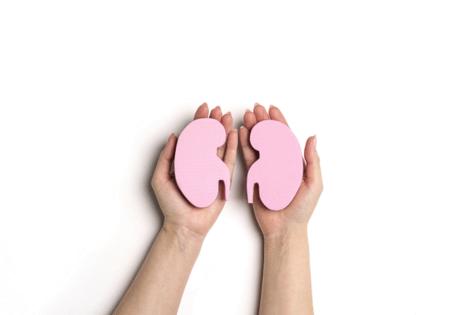Commentary: America needs more living kidney donors. Here's how we achieve that goal
Published in Op Eds
For economists, America’s organ shortage is a perplexing public health problem. About 37 million Americans suffer from kidney disease, and more than 800,000 live with kidney failure. At this advanced stage, patients either receive a kidney transplant or remain on dialysis — an expensive and often debilitating treatment — for the rest of their lives. Of the more than 90,000 Americans placed on the kidney transplant waitlist, only about 1 in 4 in 2024 received a kidney.
There are simple steps we can take to radically increase the number of kidneys available for transplant, but political and institutional inertia has stood in the way of these changes. By changing incentives for prospective donors and transplant centers, we could save thousands of lives every year.
The first and best step toward this goal is passage of the End Kidney Deaths Act, or EKDA, a piece of legislation just reintroduced in Congress that would secure $50,000 in refundable tax credits for living kidney donors who donate to someone they don’t know.
Historically, advocacy efforts have focused on increasing organ donation by encouraging people to register to be donors upon death. This is a noble cause, but not one that will ultimately address our nation’s kidney shortage: Fewer than 2% of people die in a way that allows their kidneys to be recovered for transplant.
Fortunately, there is a better option. The gold standard treatment for end-stage kidney disease is a transplant from a living donor, which can last its recipient up to twice as long as one from a deceased source. Kidney donation is remarkably safe and getting safer — donors have the same life expectancy as nondonors, and the operation has better outcomes on average than childbirth and appendectomies. What’s more, tens of thousands of brave people are willing to donate one of their kidneys in order to save the life of a loved one or stranger.
Today, however, only a third of transplanted kidneys come from living donors. Why is that?
One barrier to widespread living donation is a lack of willing donors. Despite the low level of risk associated with kidney donation, it remains an intensive process with a recovery time that can vary from four weeks to several months. Donation can also be expensive: Donors miss weeks of work during the evaluation, donation and recovery process on top of transportation and caretaking costs.
One 2019 paper by university researchers estimated that donors face financial disincentives in the range of $38,000. Programs that nominally reimburse donors for incidental costs are either means-tested against recipients or only offer reimbursement after donation, meaning donors must be able to afford lost wages and other costs upfront.
In the United States, it remains illegal to provide donors with any valuable consideration for kidney donation. This not only prohibits financial compensation, but also prevents donors from receiving health care coverage or other benefits following donation.
At the policy level, we can bring living organ donation to an all-time high by revisiting the National Organ Transplant Act, or NOTA, the legislation that makes compensation for kidney donation illegal. The EKDA, a 10-year pilot program proposed by the Coalition to Modify NOTA, offers a sensible, moderate approach to valuable consideration in the form of refundable tax credits of $50,000 for nondirected living donors. The credit would be paid out over the course of five years, at $10,000 each year, and mirror the support we already extend to other public servants, such as veterans, firefighters and adoptive parents.
If the act passes, the coalition estimates that 100,000 Americans would receive healthy kidneys from living donors over the course of 10 years. Taxpayers would save $10 billion to $37 billion in averted dialysis costs over the same time period. Meanwhile, such policy reform would also help tackle a persistent disparity: the disproportionate impact of kidney disease on low-income Americans, who are significantly less likely to receive a kidney from a loved one.
Importantly, this effort is being led not just by politicians or social engineers, but also by living donors and transplant surgeons — people who are intimately familiar with the process of kidney donation and the struggles faced by donors and recipients alike.
Often, we don’t know how to solve big problems in health care. In the case of kidney disease, we already have some of the answers. By implementing commonsense reforms, voters, policymakers and medical institutions can team up to radically reduce death and suffering as a result of this devastating disease.
____
Steven Levitt, an emeritus professor of economics at the University of Chicago and co-author of the book “Freakonomics,” is co-founder and faculty director of the university’s Center for Radical Innovation for Social Change, known as RISC. Ruby Rorty is a senior analyst at the center. Together, they lead the initiative Project Donor, which draws on behavioral science insights to support living organ donors in Chicago and nationwide.
___
©2025 Chicago Tribune. Visit at chicagotribune.com. Distributed by Tribune Content Agency, LLC.




























































Comments